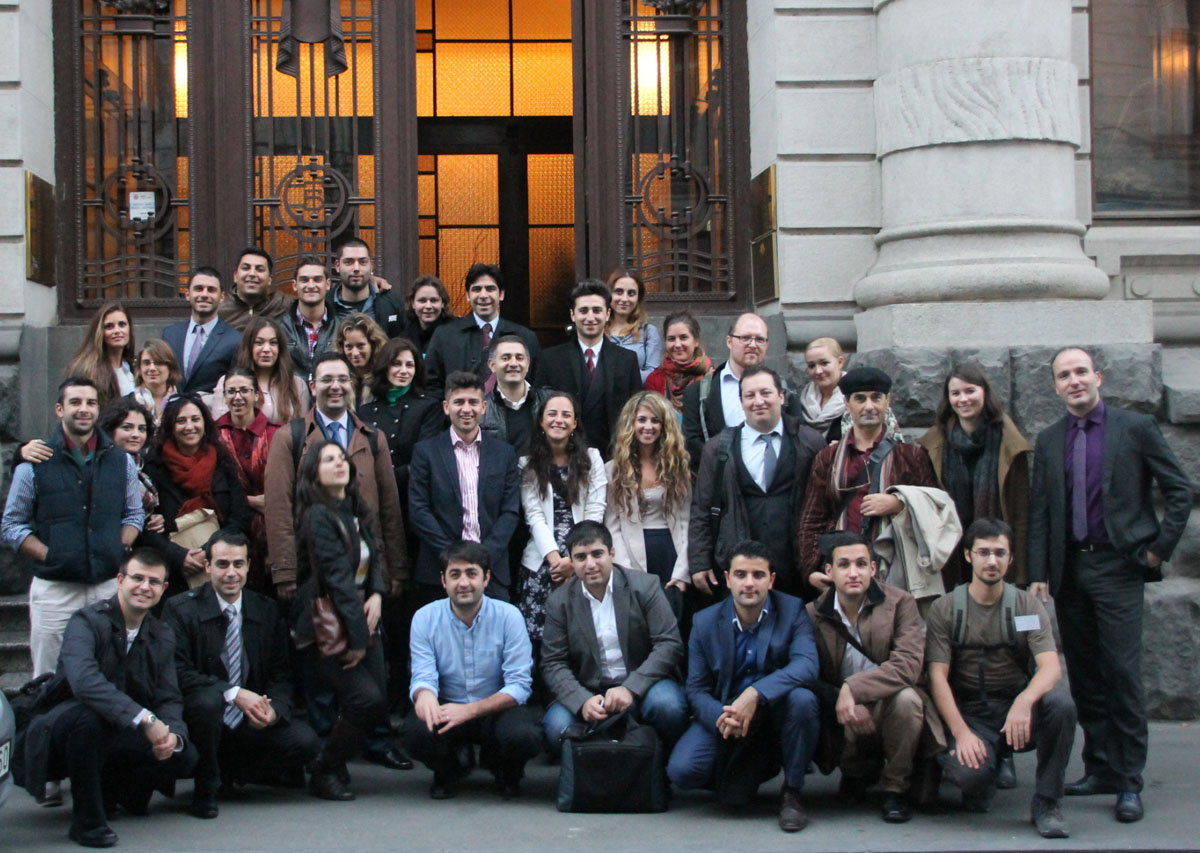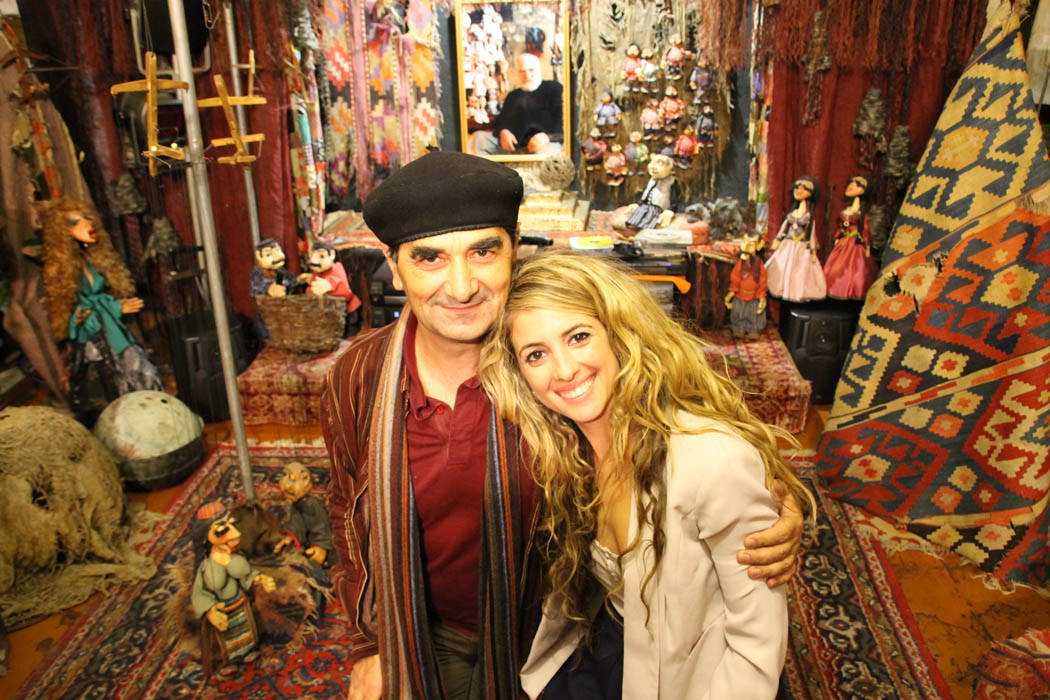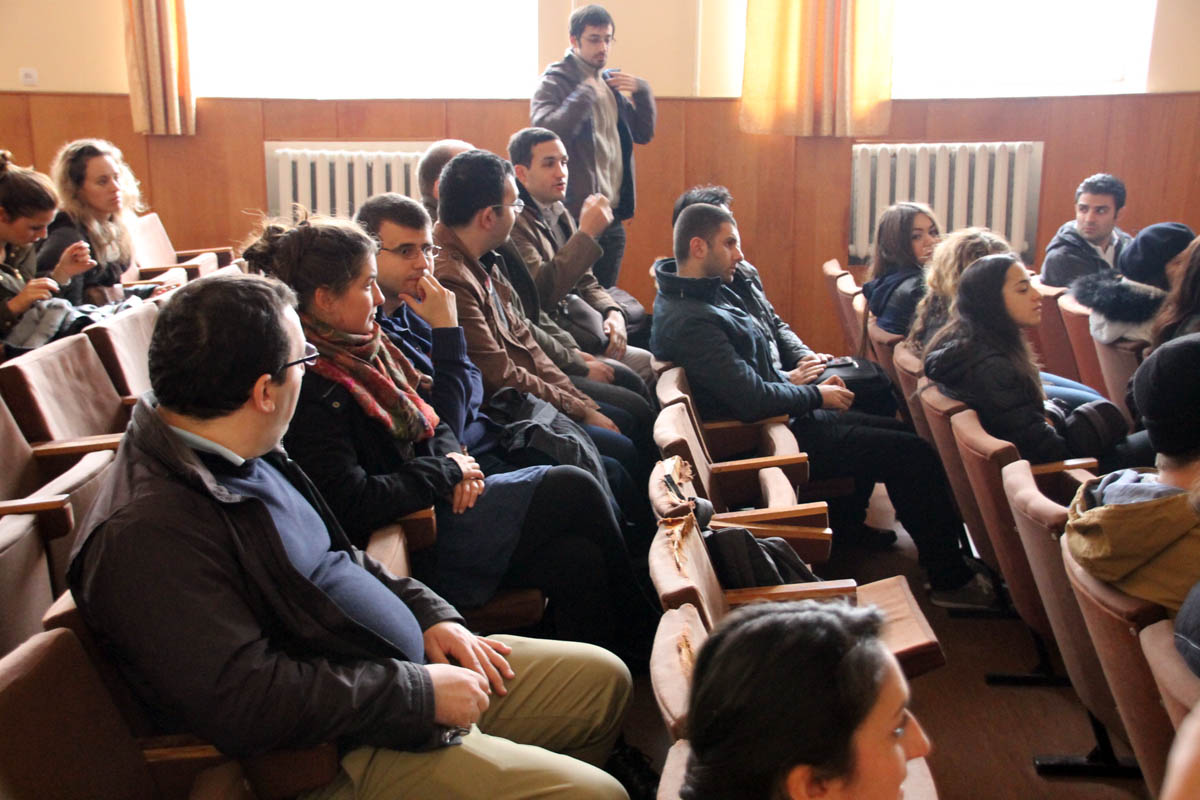28 October 2014
AGBU GORIZ HOLDS ITS 6TH ANNUAL LEADERSHIP SEMINAR
TBLISSI SEMINAR ADDRESSES IDENTITY NEGOTIATION IN THE ARMENIAN, JEWISH AND ROMA COMMUNITIES OF EUROPE
The 6th annual AGBU GORIZ seminar gathered a group of 37 young professionals from the Armenian, Jewish and Roma communities for a five-day seminar in Tblissi, Georgia. This year’s seminar-co-organized by AGBU Europe, the European Center for Minority Issues, the European Union of Jewish Students, the European Roma Grassroots Organization Network and Hayartun (Diocese of the Armenian Church of Georgia) and supported by the Erasmus+ Program of the European Union-focused on negotiating identity within minority communities.
The seminar aimed to raise awareness among participants about the ways identity perception can affect their goals and their relationships with authorities, helping the young leaders take an active part in the way their identity is understood. The event was comprised of lectures, workshops and visits to cultural sites in Tblissi and the region of Samtskhe-Javakheti. Sessions were led by representatives from organizations like the United Nations, the Council of Europe, Open Society and the Tolerance and Diversity Institute as well as by clergy and community leaders in Georgia.
One of the most memorable components of the seminar was the opportunity for participants to build cross-community understanding by sharing their experiences as minorities. One participant from Turkey shared his story of being refused a grant only available to Turkish citizens because the official in charge understood his status as a minority as his being a foreigner. Another participant spoke about the “Rent a Jew” project in Germany, which sought to diffuse stereotypes about Jews by helping people meet members of the Jewish community. And a young leader from the Roma community in Bulgaria spoke of the exclusion of the Roma people from history textbooks and its impact on Roma children’s self-perception.
The situation of religious, cultural and linguistic minorities in Georgia was also a focus of the seminar. The issue of minorities was highlighted at the time of the seminar when local media covered the conflict caused by attempts by local authorities in the Georgian village of Mokhe to dismantle a mosque. Participants also visited the ruins of the Sourp Nshan Church in Tblissi, which the state has refused to return to the Armenian Diocese.
“Georgia is a remarkably ethnically diverse country,” said Nicolas Tavitian, director of AGBU Europe. “This was a fascinating discovery because the situations of different minorities are so diverse. There are problems of all kinds. There seems to be much goodwill in some quarters, but also considerable resistance to developing a minority-friendly model in the country. Our presence here also aimed to highlight these issues, and to underline that minorities are an asset for the countries where they live, especially when they are allowed to express their identities.”
The seminar concluded with a commitment on the part of the participants to establishing a youth network of minorities in Europe that would continue the work begun during the seminar in the realms of culture and education.
GORIZ is an AGBU Europe initiative launched in 2009 to identify, train, advise and network the future leaders of European Armenian communities and provide them with support in their Armenian projects, whether in Europe or in Armenia. For more information, please visit: www.agbugoriz.org.
Established in 1906, AGBU (www.agbu.org) is the world’s largest non-profit Armenian organization. Headquartered in New York City, AGBU preserves and promotes the Armenian identity and heritage through educational, cultural and humanitarian programs, annually touching the lives of some 400,000 Armenians around the world.
For more information about AGBU and its worldwide programs, please visit www.agbu.org.



